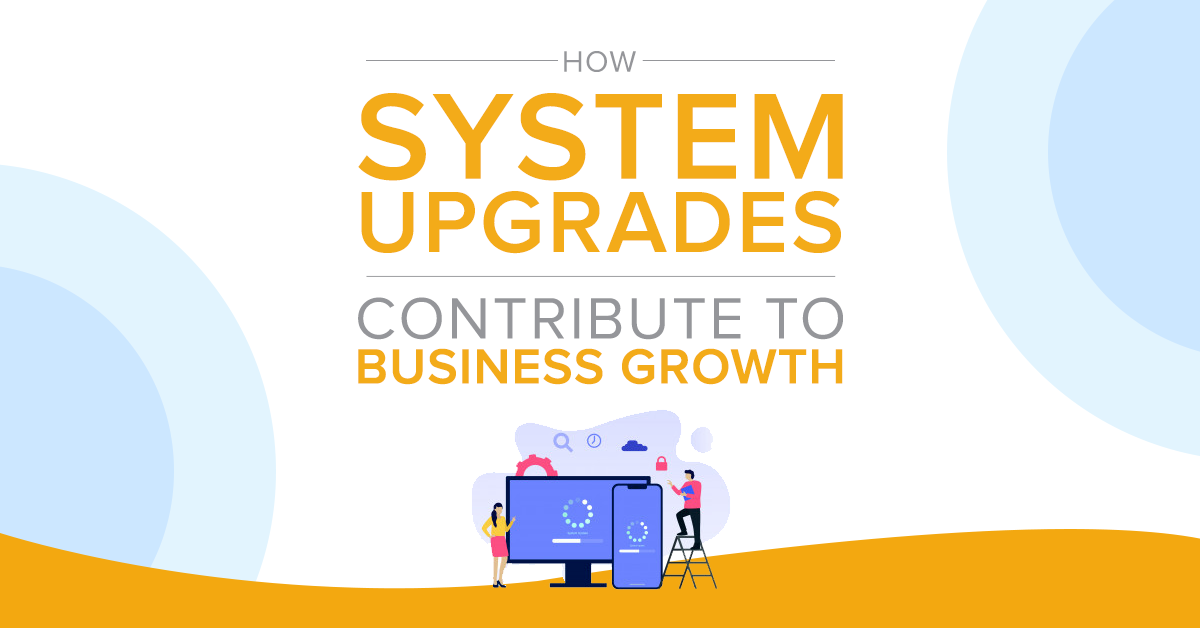How system upgrades contribute to business growth.
May 21, 2020 12:53 pm | by Aviral Chitkara | Posted in Business Management
Many are of the opinion that business development is limited to generating and converting leads for the business to increase the revenue. As the business development and operations manager at Sarvika Technologies, my point of view is slightly different.
Growth in business can be categorized into two parts: quantity and quality. The former focuses on increasing the number of clients whereas the latter focuses on improving the work quality to increase project profitability. And for companies that are into IT services, hardware and software upgrades play a crucial role in improving the quality of deliveries.
Why are companies reluctant to upgrade?
Capital is a huge factor that influences the decisions of SMBs aka small and medium businesses. Hardware and software upgrades involve shelling out tons of money. Also, the technology frequently becomes outdated with constant innovation in the industry. This, in turn, increases the frequency of updates, hence placing additional strain on the resources.
Via this blog, I will highlight the benefits of small and medium businesses providing IT services that can enjoy by updating their hardware and software infrastructure.
- Productivity: Coding, designing, documenting, etc. Every business function is performed on a system. A slow and dated hardware and software reduces the speed as well as the individual’s productivity. It will lead to delay in project deliverables and ultimately, loss of revenue. An updated system will increase both efficiency and quality. In many cases, the teams can handle more projects within the same time, thereby pushing the profits.
- Warranty: Spending money to repair old systems is no longer considered a good business decision. New systems are user-friendly and come powered with the latest software as well as an active warranty period. You might be surprised to know that in many cases the cost involved in old system repair is almost equal to a new system’s market price.
- Security: It is the most important reason why IT companies prefer constant software upgrades. Each new software release comes with enhanced security features that protect your company’s sensitive information from many cyber-threats like hackers, viruses, etc. Systems running on old software pose a great threat to the company’s going concern principle, especially when it comes to an IT company where the entire business works on codes, customer and client databases, and things alike.
- Compatibility: Companies like Adobe, Oracle, etc. tweak their software products to keep them in sync with OS upgrades. Not updating systems may render them incompatible with new software. It can negatively impact the project and its deliveries, resulting in revenue loss.
- Lastly, a happy team: Who likes working on slow and sad looking systems? People are addicted to technology that works fast and smoothly without interrupting their daily functions. Old systems will push down your team’s morale and productivity to the bottom, which is a nightmare for every company.
How often should you update the hardware and software?
It is a question that troubles most of the managers. For some, it maybe once every two years or twice a year. The answer is extremely subjective because it depends upon the size of operations and your company’s capability to fulfill the present as well near future project requirements.
For organizations that face resource crunch, they should not upgrade unless the present project needs are not getting fulfilled. However, such decisions should not come at the cost of the company’s security.
Changes are easier said than done. Whether organizations undergo structural changes or migrate to new technologies, there is resistance at every level due to a lack of familiarity and uncertainty. In the next blog, I will share tips that will help you introduce changes within the organization in a smooth manner. To keep yourself updated with our posts, subscribe to our Newsletter now.
Written by Aviral Chitkara
Senior Business Operations Manager
Aviral is the Senior Business Operations Manager at Sarvika Technologies. His research skills are unquestionable, and so is his ability to provide constant motivation to the team. An engineer turned business expansion enthusiast, Aviral is a knowledge bank when it comes to politics. Whatever the confusion or problem, he is always the one with answers.




